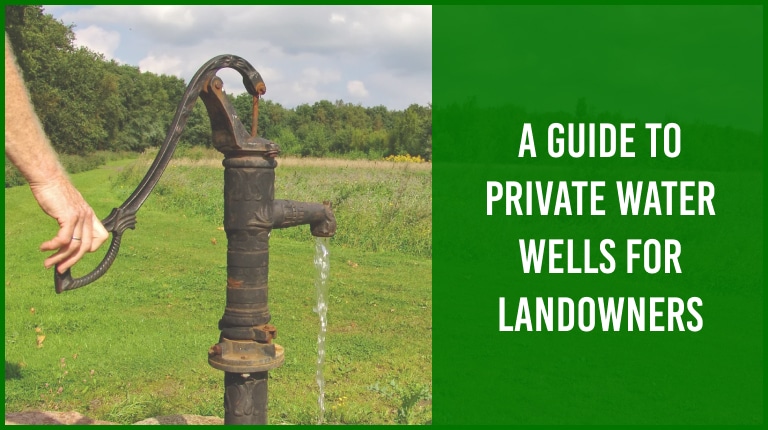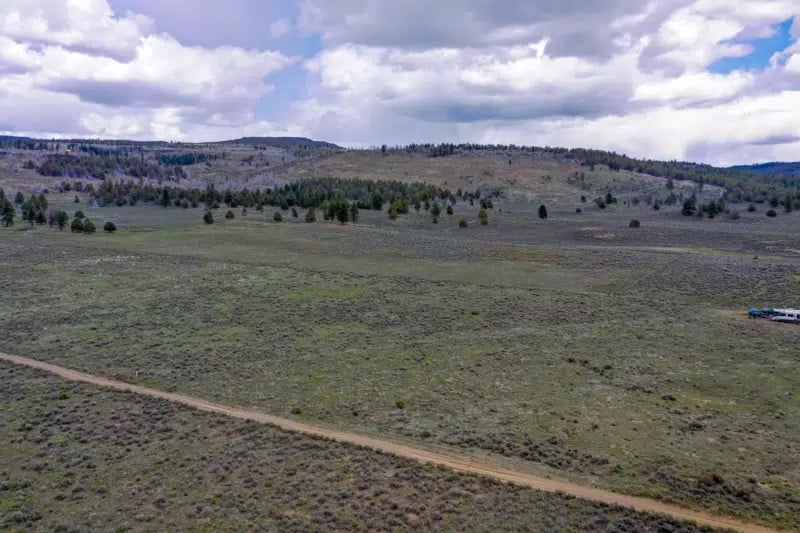It is a well-known fact that land is non-valuable without an adequate water supply. If you are a proud landowner and intend to drill private water well on it, then you must first know how to go about it.
Confused?
Whatever you plan to do with your land, whether you want to construct a building, farm, or run a business, you need to first figure out how much water you’ll need to develop a functional water supply system.
Creating a private Water Well also means you’ll be accountable for the water’s safety and purity. As such, knowing the basics of water wells is essential for ensuring its correct maintenance and optimum utilization of water.
This Guide – will help you to make informed decisions regarding your water well system.
So, let’s get started to explore valuable insights…
Table of Contents
What Is Well Water?
Well Water is groundwater – a private water supply drawn straight from the earth. To create a well, the aquifer (a porous layer of rock that contains water) must be reached by drilling a hole into the ground. The water is then transported up for your use employing a pump mechanism.
When you are connected to the municipal water supply, your tap water you get comes treated with chemicals such as chlorine and chloramines to get rid of bacteria and microorganisms. On the other hand, well water is filtered through a natural process and as it flows through layers of rocks it leaves a majority of the dirt and grime behind.
However, this is not a 100 percent assured way of removing bacteria from the water. Therefore, private well owners must opt to conduct an annual bacterial check.
How Do You Keep Your Private Water Well In Good Shape?
A simple maintenance checklist will assist you in taking the required actions to keep your private well properly maintained. Ultimately, this will work to facilitate safe, bacteria-free water access to your land. So, here are a few tips to keep in mind:
- Water well should be located at least 50 feet away from the septic tank and 75 feet away from the distribution lines of a standard septic system.
- The Well cap should be at least 8 inches above ground level.
- Get your water well tested, at least once a year.
- During the construction, installation, or service of your water well, hire qualified and certified water well drillers and pump installers.
- Keep fertilizers, paint, insecticides, and other potentially harmful materials away from your well.
- Construct the well away from buildings, chemical storage facilities, waste systems, and other potential sources of contamination.
- Keep the top of your well at least one foot above the ground while landscaping. For proper drainage, the slope of the ground surface should be away from the well.
- Be mindful of any changes in your well, the area around your well, or the water it provides, such as a lingering odor or a color change.
- When your well reaches the end of its functional life (typically more than 20 years), have it fully sealed by a skilled water well contractor once your replacement system is installed.
Procedure for Testing Your Private Well Water
As a wise landowner, you should avoid one common blunder: do not begin testing your well water until you are certain that the system is free of contaminants. If you test the water from a soiled well, you may get false results. For instance, the test may show contamination when the groundwater is clear.
By doing an anaerobic bacteria test, a positive coliform test, or other tests that demonstrate a buildup of debris in the well, a trained water well systems contractor will be able to identify if your water well system requires cleaning.
There are several other possible indicators of a dirty well such as cloudy water, low water flow, weird taste, and/or odor, etc.
If you have any of the aforementioned issues, you should clean your water well system before testing it. A widespread misunderstanding is that chlorine will clean a well by itself. Chlorine, in reality, is only effective as a disinfectant after dirt and other solid materials have been removed from the well. In this instance, hiring a qualified water well systems contractor is the best alternative to avoid exacerbating your Well problem.
The given below are some of the tests you may need to do on your private well water:
-
Coliform Test:
This is a common test to determine the microbiological purity of well water. The presence of coliform bacteria in well water implies that sewage or some other type of surface water has contaminated your water source. A simple chlorination technique that disinfects the well water can remedy such difficulties.
-
Nitrates Test:
Nitrates are also checked in groundwater systems. High nitrate levels in water indicate that groundwater has been contaminated by humans. Pregnant women and children under the age of one are especially vulnerable to high nitrate levels in the water. To avoid health problems, it is vital to have a professional do the test and remove the nitrates.
-
Test for Organic and Inorganic Compounds:
Metals, solvents, pesticides, herbicides, petroleum products, and other man-made and naturally occurring chemicals may be found in your private water well. Make sure you test for and remove these chemicals to keep your well system clean and working well.
Treatment of Well Water
You must check that the water from your private well is fine to consume before using it. You can invest in numerous types of water treatment equipment. Also, you may focus on purchasing the necessary treatment equipment once you’ve recognized the concerns with your well water. This is critical since no single piece of equipment can solve all of the water quality problems.
For this, you may find well treatment equipment depending on your specific needs, involving:
- Disinfection of the Water contaminated by microorganisms.
- To improve water’s taste, odor, and appearance.
- To remove chemical elements of concern.
Filtration systems, disinfection systems, air injection systems, cartridge filters, distillers, aeration systems, and ion exchange systems are some of the most regularly used water treatment systems. Nevertheless, for your water treatment system to function properly, you’ll need to choose a reliable installer.
To Sum Up…
You can avoid paying monthly water fees by purchasing land with a private well or opting to build your private water well. Since you won’t be reliant on the local water supply, you will be spared of the interruptions if the town or city’s water supply is disrupted.
However, just as there are benefits, there are also some obligations that come with owning a private well. You cannot use contaminated water or water that has an unusual flavor or odor. As a result, it is always a good idea to learn about the well’s history (if it is old), condition, and capacity. This information can be obtained from the previous landowner.
The previous landowner can inform you about the water quality, what has been done to the well in the past, the flow rate, how much water it retains, and if it can be safely used for a few more years or if it is time to retire the well.
To avoid surface contamination and eliminate a potential safety hazard, the water well must be filled and sealed properly before retirement.






